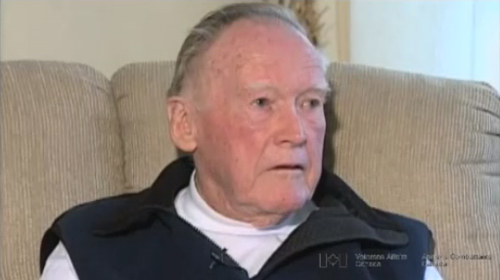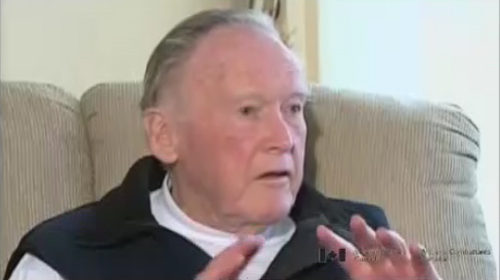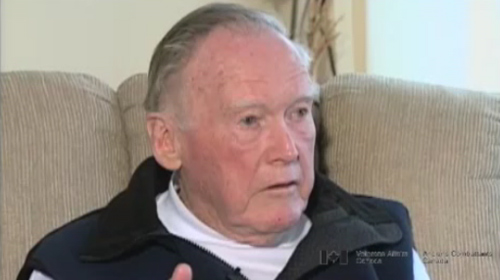Anthony Eden’s Estate
Heroes Remember
Anthony Eden’s Estate
Transcript
Description
Dr. Theal describes his responsibilities as a camp physician, as well as his impressions of Yorkshire and its people.
Dr. Gordon Irvine Theal
Dr. Theal was born in Grimsby, Ontario on April 2, 1916. His father, a farmer, operated a feed mill and later became a grocer, at which time Dr. Theal was old enough to help in the family business. At the insistence of some friends, he enrolled in Queens University’s medical school in Toronto. With the outbreak of war, he joined the Officer Training Corps. After graduating, Dr. Theal married and moved to British Columbia, where he went from camp to camp, encouraging enlistment in the regular forces. After shipping overseas and a couple postings in England, he was shipped to France during the D-Day invasion. His brigade accompanied the Allied advance from France to Holland. During this time, Dr. Theal and his team performed triage. This was the first contact the wounded had with a doctor and he would provide emergency medical treatment before the wounded moved back to the larger field hospitals. After completing his tour, Dr. Theal returned home to Ontario, to his wife and daughter, and took up private practice. He currently resides in Courtney, British Columbia.
Meta Data
- Medium:
- Video
- Owner:
- Veterans Affairs Canada
- Duration:
- 3:27
- Person Interviewed:
- Dr. Gordon Irvine Theal
- War, Conflict or Mission:
- Second World War
- Branch:
- Army
- Units/Ship:
- Royal Canadian Army Medical Corps
- Rank:
- Captain
- Occupation:
- Doctor
Related Videos
- Date modified:








_10.jpg)